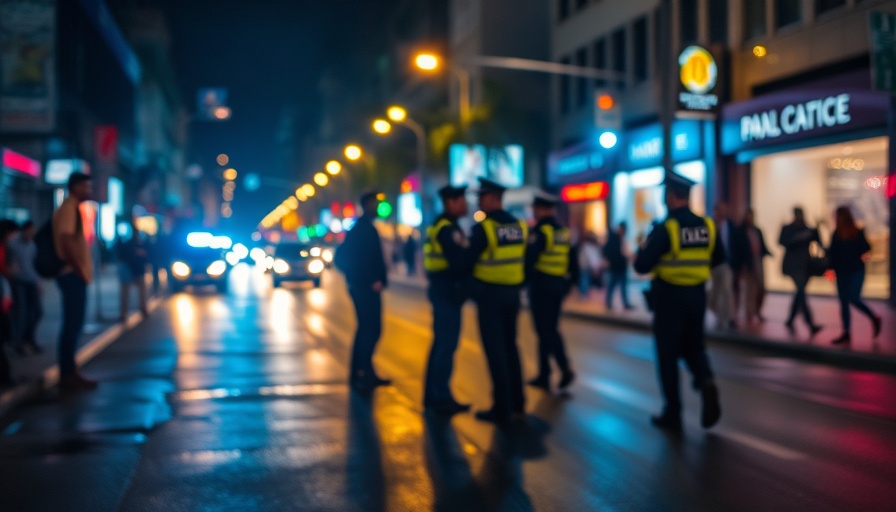
Unpacking the Disturbing Incident at River Glen Senior Living Facility
On December 1, 2024, a truly alarming incident unfolded at the River Glen senior living facility in St. Charles, Illinois, bringing forth critical discussions about police response protocols, community safety, and the implications of behavioral health issues in crisis situations. Newly released body camera footage captures the chaotic moments when a man entered the facility wielding a chainsaw, leading to an officer-involved shooting that left him dead.
Understanding the Officer's Actions Amid Chaos
According to officials, a 911 call alerted police to the presence of the man with a chainsaw. Officers arrived and confronted the individual, commanding him to drop the weapon. Tragically, the situation escalated quickly. After deploying a TASER, the officer engaged in a physical confrontation with the man as he attempted to operate the chainsaw inside the facility's cafeteria.
The pursuit that ensued exemplifies the split-second decisions law enforcement officers must make in high-risk situations. The officer, after missing initial shots, eventually fired in response to the man charging him. A toxicology report later revealed that the man had methamphetamine and other substances in his system, a detail that underlines the complexities of policing individuals who may be experiencing substance crises.
Community Safety and Police Accountability
In light of this incident, it’s essential to discuss the role of law enforcement in ensuring safety, particularly in vulnerable populations such as seniors living in assisted facilities. No residents were harmed, but the potential for danger was palpable throughout the incident. The state’s attorney’s office ruled that the officer's use of deadly force was justified to prevent further harm. Yet, this raises broader questions regarding the policies and training protocols police officers receive when responding to situations involving potentially mentally unstable individuals.
Implications for Law Enforcement Leadership and Training
The escalation from a weapon-less confrontation to lethal force reflects a significant area of concern in police training on mental health crises and non-violent crisis intervention techniques. Experts argue that departments should incorporate more comprehensive training that balances effective crisis response with the safety of officers and the community. Equipping officers with advanced strategies could mitigate situations before they escalate, fostering a community-oriented policing approach that prioritizes de-escalation over use of force.
Local Impact and Future Predictions for Policing Strategies
While this case suggests progress in using body-worn cameras to provide transparency and accountability, it also highlights the pressing need for enhanced community police relations. Future predictions indicate a continued focus on utilizing technology within policing, yet this must be accompanied by strong community engagement efforts. As communities demand better training and policies regarding officer wellness and public safety, law enforcement agencies will have to adapt to these evolving expectations.
Conclusion and Call to Action
As the discourse around police reform intensifies, law enforcement officials, policymakers, and academic researchers must come together to prioritize mental health training and reforms in use-of-force policies. Understanding the complexities of incidents like the one at River Glen is crucial for fostering safer communities and promoting accountability within law enforcement. Continuing to advocate for enhanced training programs and community-based initiatives can ultimately lead to more effective and compassionate policing.
Join the conversation and discover more about how to improve safety standards and community relations through education and policy change.
 Add Row
Add Row  Add
Add 

 Add Element
Add Element 




Write A Comment